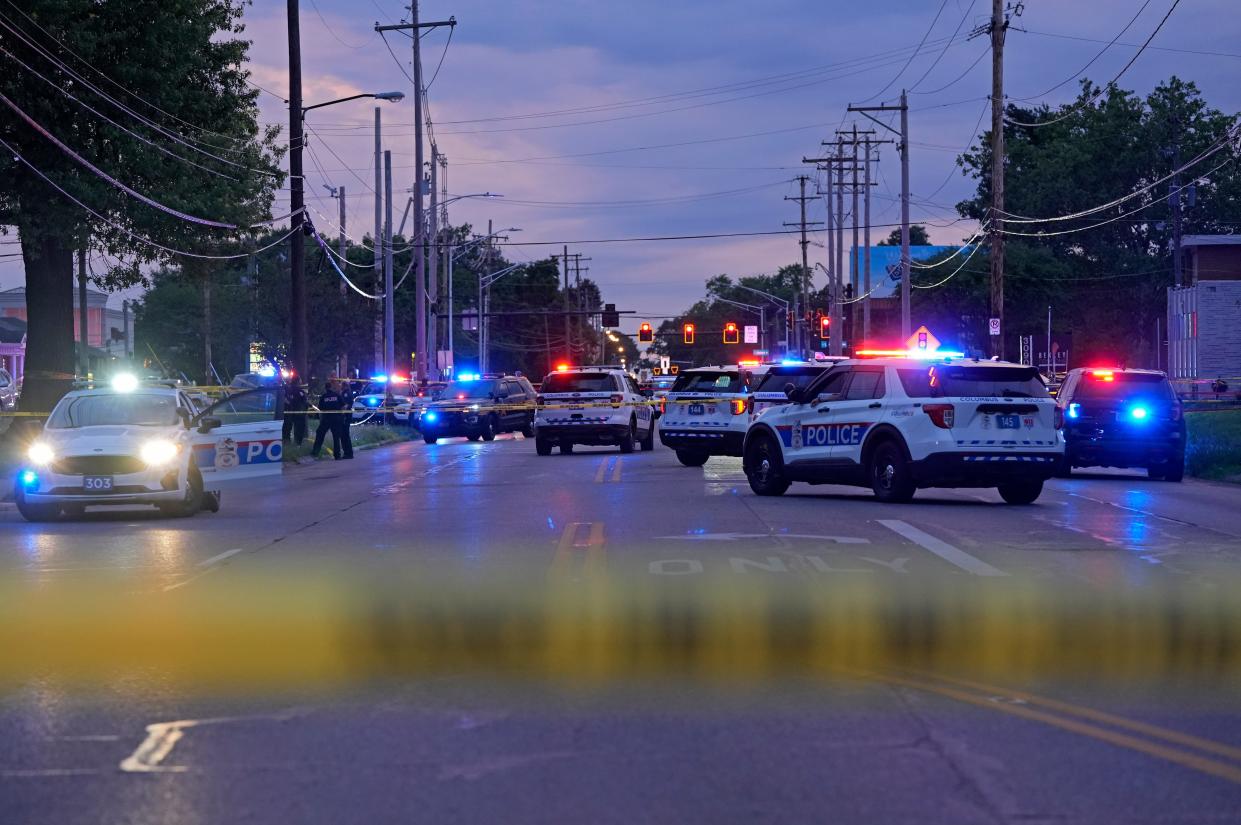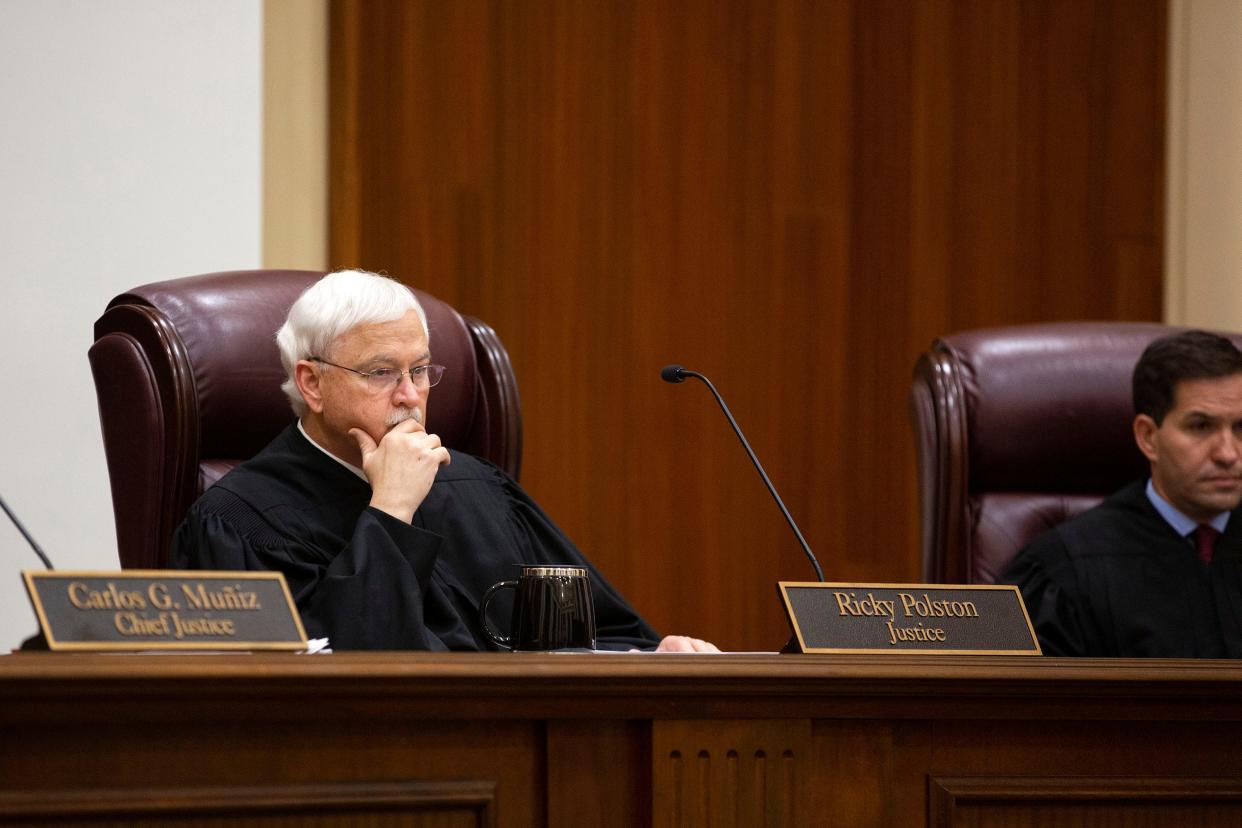Our view: OSU president scandal, unnamed city police show disregard of public accountability

Columbus Dispatch journalists reported about the power struggle between Kristina Johnson and Les Wexner — Ohio's richest resident — that led to Johnson's decision to step down as president of this state's largest university.
Clues were dropped, but details about why Johnson resigned from her post as Ohio State University's president were never fully disclosed by the players intimately involved.
We now know why no one talked thanks to diligent young journalists from OSU's student-run newspaper and public records.
Johnson signed an agreement that she would lose $927,000 in compensation if she spoke ill about the university.
Members of Ohio State's Board of Trustees agreed not to disparage Johnson at the risk of lawsuit.
More: Kristina Johnson loses compensation if she speaks poorly of Ohio State, agreement says
How The Lantern and public records let in the light
More than seven months after Johnson announced her resignation, Jessica Langer — an Ohio State graduate and former editor-in-chief of The Lantern — successfully beat a legal challenge in which OSU cited attorney-client privilege in its denial of releasing public documents between Ohio State, its board of trustees and Johnson related to her departure.
Like many Columbus-area journalists, including those from the Dispatch, Langer sought and was at first denied "any contract, memorandum of understanding, non-disclosure agreement or other signed document."
But she persisted to shine the light.
"I felt like this was right for the public to know. As a public university, transparency should be at its core," Langer told Dispatch higher education reporter Sheridan Hendrix.
The university's attempt to keep the agreement from the pubic is alarming, but not at all surprising.
It is yet another example of attempts — many of them slick and shameful — to keep the public's records from the public.
As the late U.S. Supreme Court Justice Louis Brandeis, wrote in 1914, “Publicity is justly commended as a remedy for social and industrial diseases. Sunlight is said to be the best of disinfectants; electric light the most efficient policeman.”
That is as true now as it was in Brandeis' day, but there is always a fight to keep the light shining.
Two recent controversies show setbacks in the fight for transparency.
More: Opinion: Crime victims deserve same rights as accused. Law step in the right direction
$440 million in public opioid settlement money

It is now far harder for the public to track how the money awarded to Ohio from three major drug distributors Ohio Attorney General Dave Yost sued for their part in the opioid crisis that has claimed far too many lives.
A provision in the newly passed state budget made OneOhio Recovery Foundation a private agency exempt from public records and meetings laws even though our attorney general will still represent it.
The change came on the heels of a unanimous Ohio Supreme Court ruling that said the then-public agency charged with distributing $440 million in public opioid settlement money must make its records available to the public.
Police officers shielded under law meant to protect crime victims

Even more disturbing, the Columbus Division of Police and Columbus City Attorney’s Office used the recently enacted Marsy's Law to justify why they will not disclose the names of eight police officers involved in a highway shootout that left one suspect dead and a Columbus police officer injured.
In a statement, the division claims the officers are victims and they have no other choice but to conceal the officers' identities under the law.
"We want to be clear: this was not a choice made by the Columbus Division of Police. It is a state law by which we (and all other agencies) are required to abide and uphold. In fact, this was a concern CPD raised with state lawmakers," the division says in a recent statement.
"A 'victim' is any person against whom a criminal offense is committed or who is directly and proximately harmed by the commission of the offense. 'Criminal offense' means an alleged act or omission committed by a person that is punishable by incarceration and is not eligible to be disposed of by the traffic violations bureau. There is nothing in the Ohio Constitution, or the ORC/Marsy’s Law, that excludes a police officer crime victim from the definition of 'victim.'"
Columbus is not the only municipality where this is playing out.
The Florida Supreme Court is considering an argument between Tallahassee and the union representing its police officers. The union argues that the identities of officers who killed suspects should be kept secret under that state's version of Marsy's Law.

The law is in honor of Marsalee “Marsy” Ann Nicholas, a Cincinnati-born, California college student who was stalked and murdered by her ex-boyfriend on Nov. 30, 1983.
The Ohio General Assembly could and should have clarified matters to protect the public's right to know.
Ohio's version of the law was overwhelmingly approved by voters in 2017 as a constitutional amendment.
Marsy's Law aims to ensure crime victims be notified of important hearings and given certain privacy. The Ohio General Assembly passed, revised and codified the law that went into effect in April 2023. Before lawmakers changed the law in May, crime victims had to "opt in."
Despite what the General Assembly did or did not do, it is clear this law was meant to protect crime victims not conceal the names of police officers charged with the critical duty of upholding our laws.
The city's application of the law disregards the public's right to know.
By refusing to release the people's records, Columbus civil rights attorney Sean Walton Jr. says the city is undercutting transparency and police accountability.
"It is not quite logical how they are applying it," he told a member of this editorial board. "They are using it conveniently to shield information from the public."
Suspect names are still released.
Walton says it will be harder for journalists, lawyers and other members of the public to track officer behavior and spot bad actors.
Police officers do not have the same risks of exposure or have the anonymity a crime victim might.
They are re public servants whose identities are known to the public.
There are already laws on the books that rightly protect police officers' home addresses and other personal information.
The only protection the city stance adds is that officers be kept from public scrutiny.
These recent developments should concern all truth-seeking Ohioans who believe the sunshine of public scrutiny is our best disinfectant when it comes to corruption, misconduct and other abuses of power.
There is a reason dirty deeds are done in the dark and so many are so eager to turn out the lights.
This piece was written by the Dispatch Opinion Editor Amelia Robinson on behalf of The Dispatch Editorial Board. Editorials are our board's fact-based assessment of issues of importance to the communities we serve. These are not the opinions of our reporting staff members, who strive for neutrality in their reporting.
This article originally appeared on The Columbus Dispatch: Ohio State, hidden name of Columbus police show disregard for public right to know| Editorial


